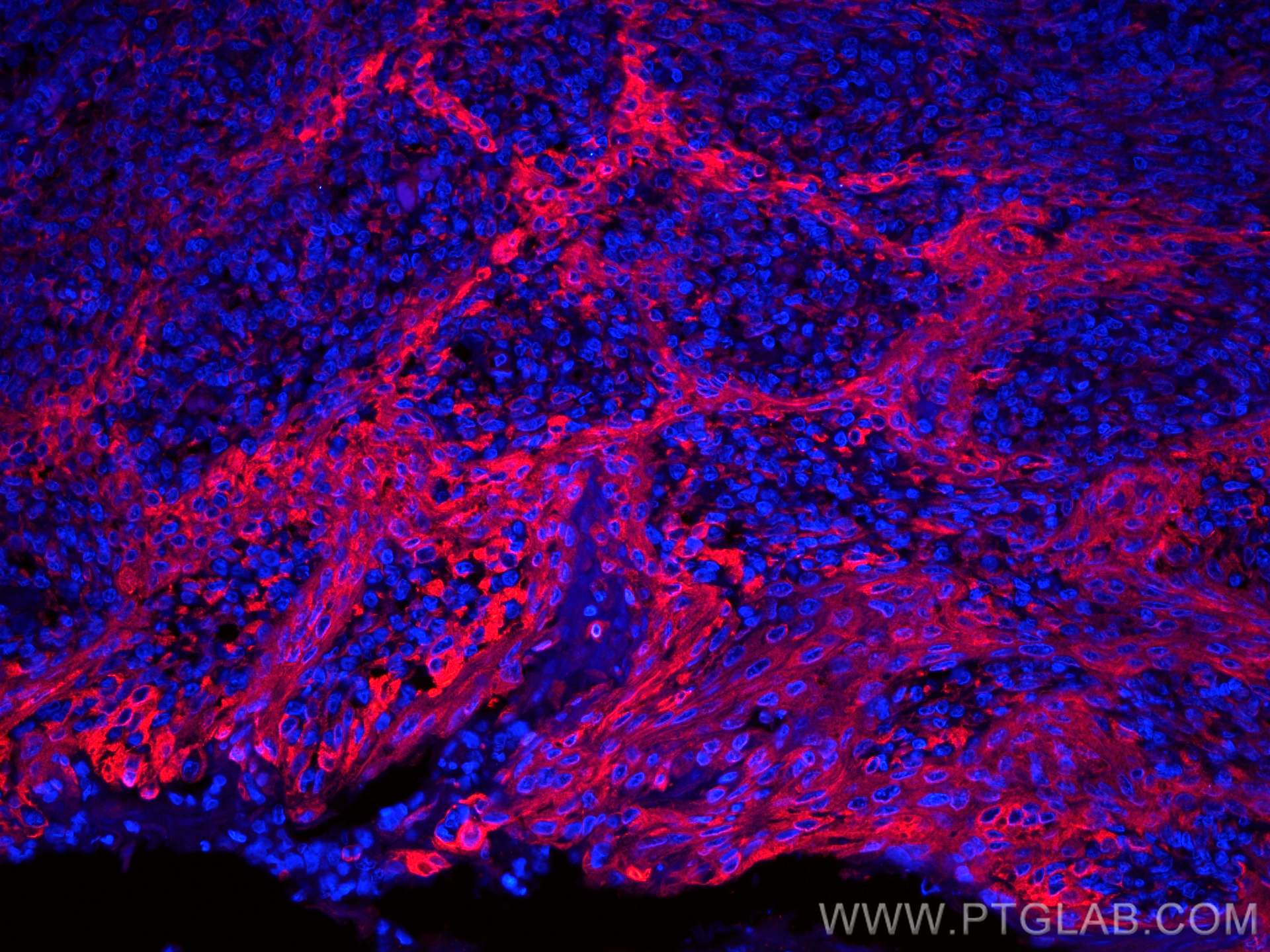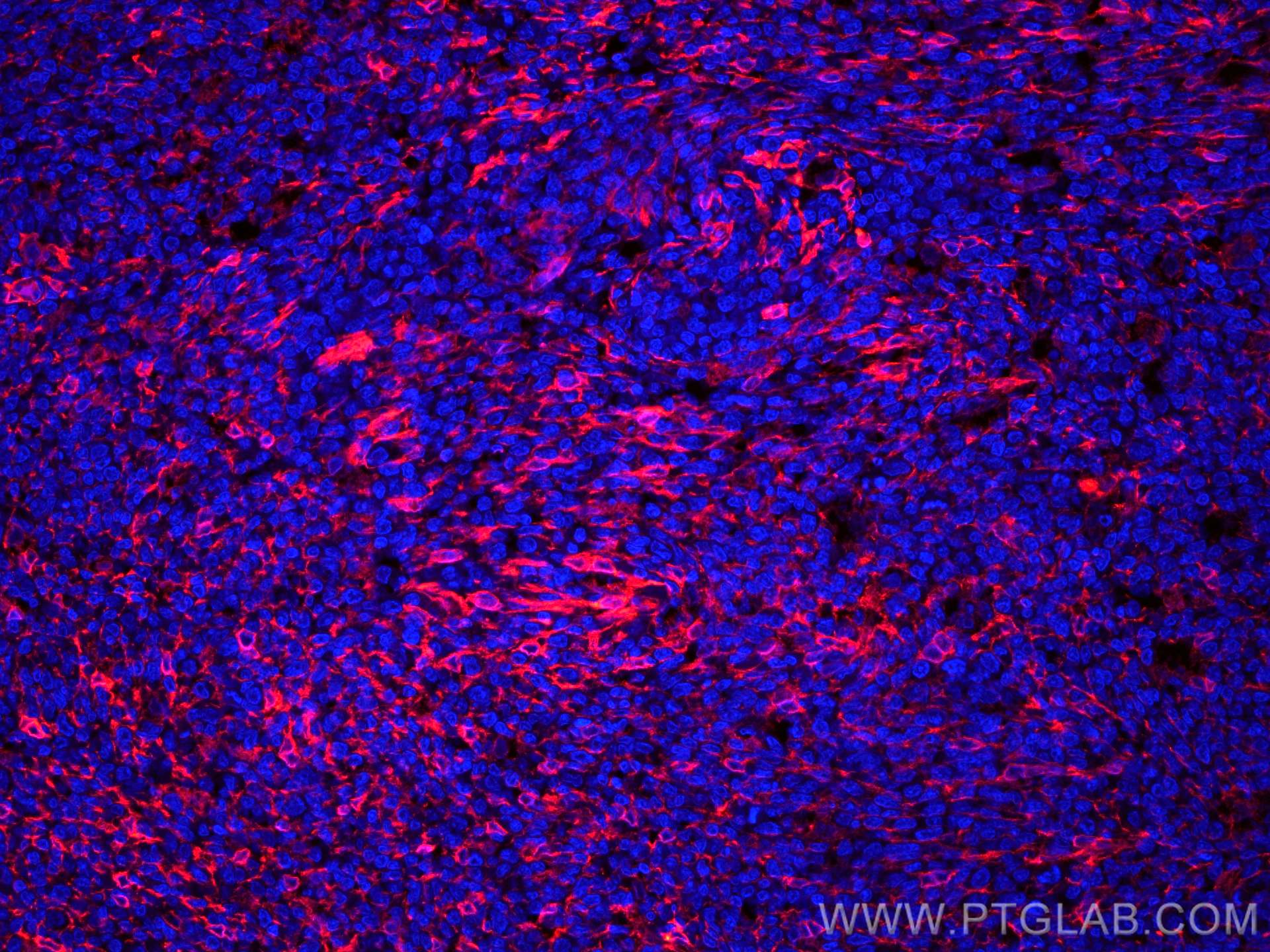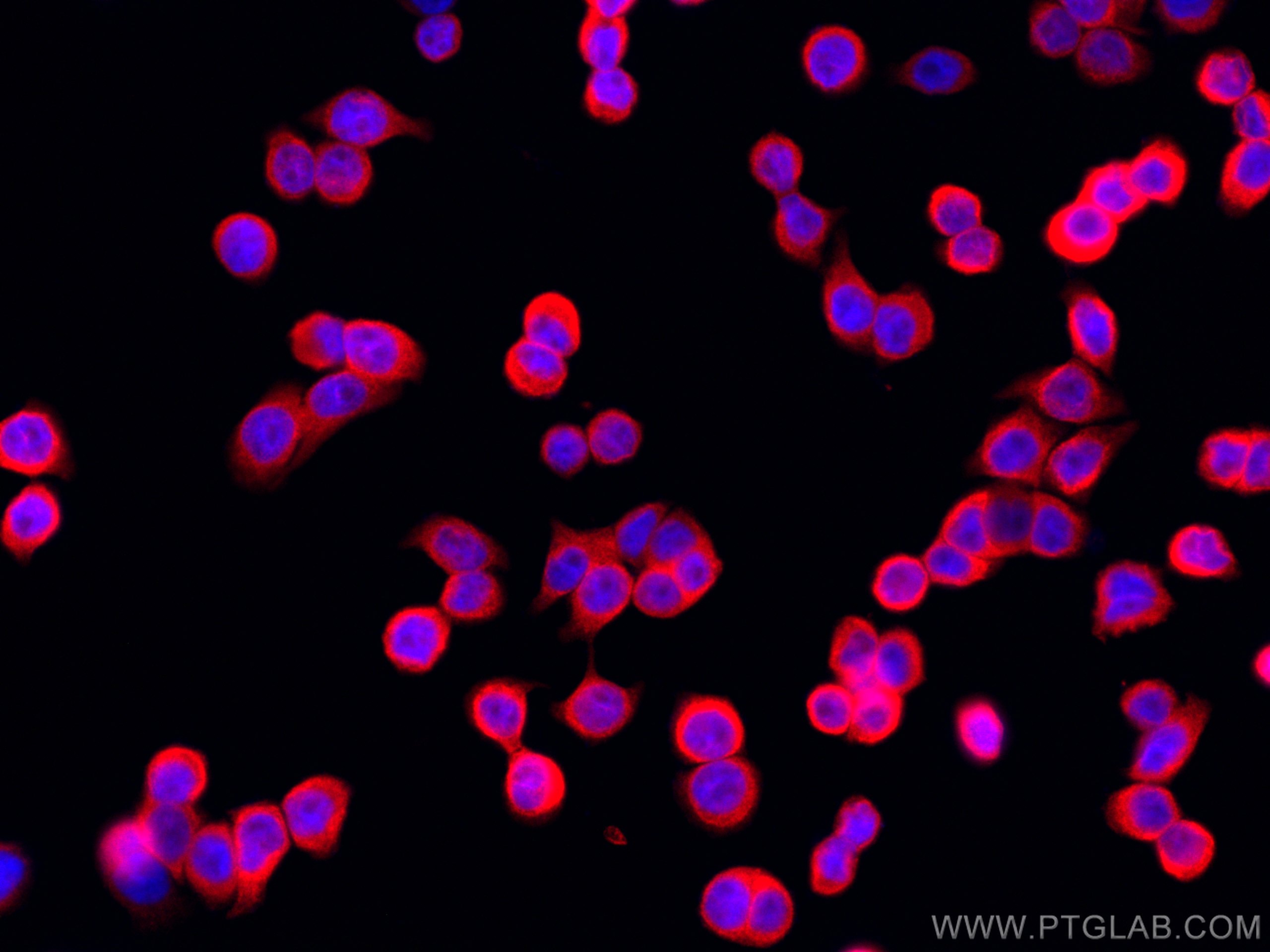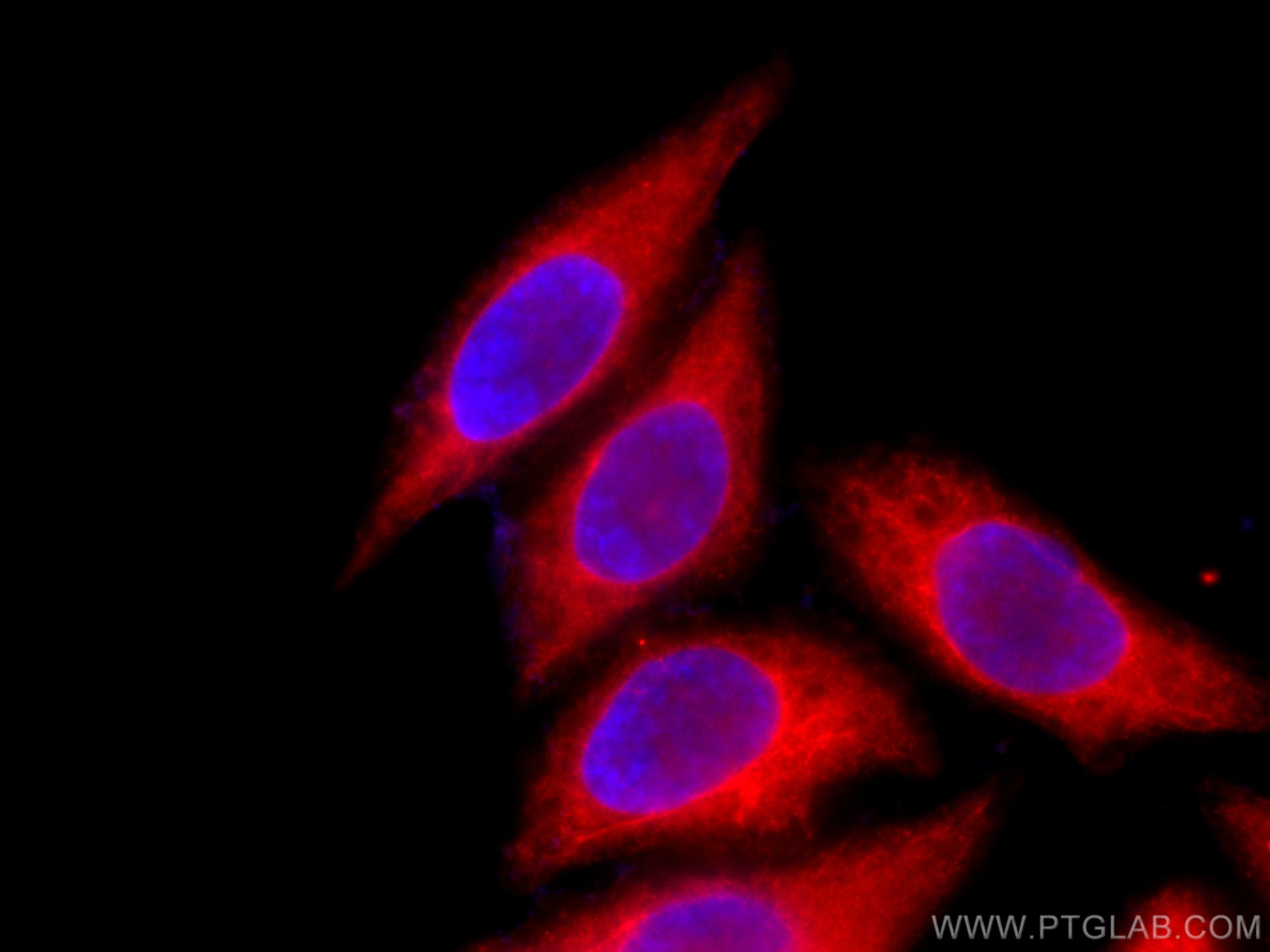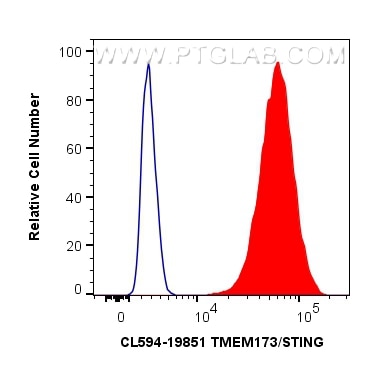- Phare
- Validé par KD/KO
Anticorps Polyclonal de lapin anti-TMEM173/STING
TMEM173/STING Polyclonal Antibody for IF/ICC, IF-P, FC (Intra)
Hôte / Isotype
Lapin / IgG
Réactivité testée
Humain, rat, souris
Applications
IF/ICC, IF-P, FC (Intra)
Conjugaison
CoraLite®594 Fluorescent Dye
N° de cat : CL594-19851
Synonymes
Galerie de données de validation
Applications testées
| Résultats positifs en IF-P | tissu d'amygdalite humain, |
| Résultats positifs en IF/ICC | cellules HT-29, cellules HepG2, tissu d'amygdalite humain |
| Résultats positifs en FC (Intra) | cellules THP-1, |
Dilution recommandée
| Application | Dilution |
|---|---|
| Immunofluorescence (IF)-P | IF-P : 1:50-1:500 |
| Immunofluorescence (IF)/ICC | IF/ICC : 1:50-1:500 |
| Flow Cytometry (FC) (INTRA) | FC (INTRA) : 0.80 ug per 10^6 cells in a 100 µl suspension |
| It is recommended that this reagent should be titrated in each testing system to obtain optimal results. | |
| Sample-dependent, check data in validation data gallery | |
Applications publiées
| IF | See 1 publications below |
| FC | See 1 publications below |
Informations sur le produit
CL594-19851 cible TMEM173/STING dans les applications de IF/ICC, IF-P, FC (Intra) et montre une réactivité avec des échantillons Humain, rat, souris
| Réactivité | Humain, rat, souris |
| Réactivité citée | souris |
| Hôte / Isotype | Lapin / IgG |
| Clonalité | Polyclonal |
| Type | Anticorps |
| Immunogène | TMEM173/STING Protéine recombinante Ag13921 |
| Nom complet | transmembrane protein 173 |
| Masse moléculaire calculée | 379 aa, 42 kDa |
| Poids moléculaire observé | 35-40 kDa, 80 kDa |
| Numéro d’acquisition GenBank | BC047779 |
| Symbole du gène | STING |
| Identification du gène (NCBI) | 340061 |
| Conjugaison | CoraLite®594 Fluorescent Dye |
| Excitation/Emission maxima wavelengths | 588 nm / 604 nm |
| Forme | Liquide |
| Méthode de purification | Purification par affinité contre l'antigène |
| Tampon de stockage | PBS with 50% glycerol, 0.05% Proclin300, 0.5% BSA |
| Conditions de stockage | Stocker à -20 °C. Éviter toute exposition à la lumière. Stable pendant un an après l'expédition. L'aliquotage n'est pas nécessaire pour le stockage à -20oC Les 20ul contiennent 0,1% de BSA. |
Informations générales
Stimulator of interferon genes (STING, also known as ERIS, MITA and MPYS, and encoded by TMEM173) is a transmembrane adaptor protein that facilitates innate immune signaling (PMID: 18724357). STING is widely expressed in various cell types such as endothelial cells, epithelial cells, T cells, macrophages, and dendritic cells (PMID: 26603901). It is predominantly located in the endoplasmic reticulum (ER). STING functions as a sensor of cytosolic DNA and promotes the production of type I interferons and pro-inflammatory cytokines.
Protocole
| Product Specific Protocols | |
|---|---|
| IF protocol for CL594 TMEM173/STING antibody CL594-19851 | Download protocol |
| Standard Protocols | |
|---|---|
| Click here to view our Standard Protocols |
Publications
| Species | Application | Title |
|---|---|---|
J Neuroinflammation The BET PROTAC inhibitor dBET6 protects against retinal degeneration and inhibits the cGAS-STING in response to light damage | ||
Mol Pharm STING-Targeted PET Imaging for Specific Detection and Therapeutic Monitoring of Myocarditis |
